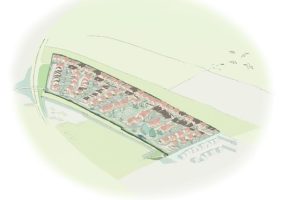Key worker concerns for Linfoot

PROPERTY entrepreneur Kevin Linfoot has raised fears that his dream of creating hundreds of flats for lower paid “key workers” in a Yorkshire city could be scuppered.
Mr Linfoot’s company, KW Linfoot, is behind proposals to build around 800 small flats in Leeds to help lower paid people get on the property ladder.
But Mr Linfoot, who claimed he had a “war chest” of funds available to buy new sites for development, said that although he is confident the scheme has the backing of Leeds City Council planning officials, he is concerned that it will not be passed when it comes before the Council’s planning members.
Mr Linfoot said: “We’ve got a (outline planning) consent for providing key worker accommodation. We see everybody in the city as a key worker. They’re people who want to work in the city centre.
“The concept works but we’re finding it difficult to sell to the members (of Leeds City Council’s planning committee). If it does fall away it will be sad.”
Richard Dean, joint managing director of KW Linfoot, said the company had carried out market research which showed that between 12,000 and 20,000 people want to live in Leeds city centre.
Mr Dean said that he did not agree with those who argued that there was not enough demand for apartments and that there was an over-supply.
Mr Linfoot said: “I think it would be such a sad thing for Leeds (if the scheme did not go ahead). We’ve spent a lot of time and effort on this one and it has taken up the last year of my life.”
The development would be aimed at people who could not afford the going rate for city centre flats but were also ineligible for affordable – offered for sale or rent at below normal market levels – housing.
KW Linfoot has defined a key worker as a public sector worker or someone fro specific service industries.
Mr Linfoot said people living in the village would most probably be working different shifts so footfall would be evenly distributed over a 24-hour period.
He said communal areas would be created offering residents access to restaurants, cafes and bars.
Mr Linfoot also said he was looking for sites which the company could take advantage of once the property market recovers.
“We’ve got a war chest to go out and buy stuff.”
Mr Linfoot said of the present situation in the property market and wider economy: “I think it’s a levelling that needed to happen. But we’re in a niche market.
“All we understand is city centres so we find it hard to grasp what’s going on in wider areas.”
Mr Dean added: “The strength is in the rental market. If there wasn’t a demand in the rental market we’d be dead. But the rental market is strong. The issue is with people with mortgages.”








